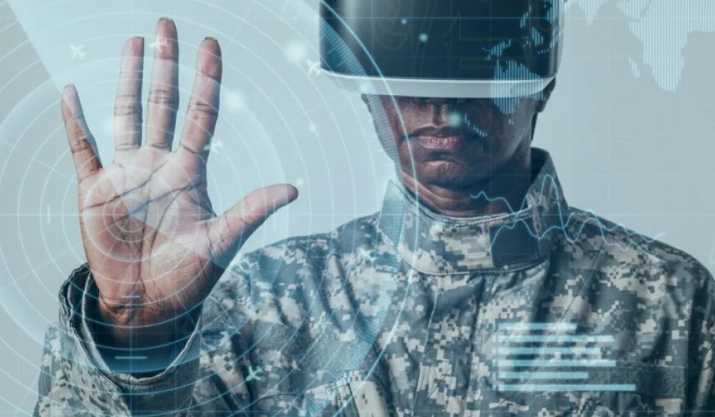Military Translation: The Invisible Heroes on the Front Line

When we think of heroes of war, our minds usually turn to soldiers, doctors, or volunteers. But few remember those who help them understand one another every day — military translators. Their work often remains in the shadows, yet they are the bridge between lives, decisions, and peace.
Who Are Military Translators
A military translator is a specialist who works not only with language, but with context: military terminology, hierarchy, cultural nuances, and slang. The translator’s goal is to ensure precise communication between soldiers, diplomats, journalists, civilians, and allies. Professional translation in this field is not just about words — it’s a task that combines responsibility, analysis, and composure.
The Historical Role of Military Translators
The earliest examples of military translation go back to antiquity, when scribes and interpreters accompanied commanders in their campaigns. By the 20th century, translators had become indispensable. During World War II, the work of military translators influenced the outcome of negotiations, assisted in interrogations of prisoners of war, and helped decipher documents. One famous case involved a misinterpretation of a single Japanese word during post-war talks, which nearly changed the understanding of Japan’s surrender terms. This illustrates how vital accuracy and context are in professional translation.
In later conflicts — Korea, Vietnam, and the Middle East — translators were just as essential. Many of them were local civilians who risked their lives to enable communication between the military and local populations. Without them, operations, coordination among allies, and civilian cooperation would have been impossible.
Challenges of Military Translation
Military translation is a constant test of professionalism and endurance. The difficulties of translation here are very specific. First, the context can change from minute to minute: from formal negotiations to emergency orders in combat conditions. An error can result not in a simple misunderstanding, but in loss of life.
Second, military language is filled with specific expressions, abbreviations, and jargon that often have no direct equivalents in other languages. For instance, the English term “rules of engagement” cannot simply be translated word for word — it carries strategic and legal meaning. An experienced translator seeks not only linguistic equivalence but also conceptual accuracy.
Third, there is the emotional aspect. Translators often witness intense human experiences — fear, pain, hope — yet must maintain professional composure. This makes military translation as much a test of psychological stability as of linguistic skill.
Technology and Modern Military Translation
Today, even the most specialized fields, such as military translation, are touched by digitalization. Secure data transmission channels, terminology databases, and analytical software assist translators. However, no matter how advanced the technology, the human factor remains crucial. Machines can process text rapidly, but they cannot grasp subtext or interpret a commander’s tone.
Modern military translators work not only in the field but also in headquarters, analytical centers, and international institutions. Their work often combines the roles of interpreter, consultant, and cultural mediator. Thanks to professional translation, armies from different nations can conduct joint exercises, researchers can share defense studies, and international organizations can coordinate humanitarian missions.
Training and Professional Qualities
Military translation requires special preparation. Knowing a foreign language is not enough — a translator must understand military symbols, geopolitics, and human communication psychology. Many translators take additional training in diplomacy, military affairs, or international law. Equally important are self-control, the ability to make quick decisions, and adaptability.
A professional translator in this field must be both an analyst and a communicator. They must understand speakers’ motivations, interpret meaning correctly, and be sensitive to psychological pressure. It is often said that military translators must think faster than they speak.
Interesting Facts and Examples
One well-known historical example is the team of Japanese–English translators who worked at the Tokyo War Crimes Tribunal. Their daily transcriptions and translations became the bedrock of historical documentation. Another is the group of NATO translators who manage communications among hundreds of delegations simultaneously — just one inexact word could alter the diplomatic meaning of a statement.
Many former military translators later become consultants in localization for defense-related software or teach at military academies. Their experience helps establish professional standards and strengthen cooperation between international agencies.
Ethics and Responsibility
The ethical dimension is among the most complex aspects of this profession. Military translators often handle highly classified information. Therefore, maintaining confidentiality, impartiality, and professional ethics is absolutely essential. Even under pressure, the translator’s duty is to remain accurate and truthful, not politically biased.
This is what makes the profession special: it requires not only knowledge and discipline but moral integrity. Sometimes, it is the translator who prevents escalation or helps build peace — simply by delivering words faithfully.
Why We Should Talk About Military Translators Today
Recognizing the role of military translators means acknowledging the power of language as a tool that saves lives. In an age of global challenges, information warfare, and high-stakes negotiations, the profession of translator has once again moved to the front line. A competent, attentive, and responsible translator is as vital as reliable equipment or strategic logistics.
For companies providing professional translation, the example of military interpreters sets a standard of discipline, precision, and accountability — qualities essential in any translation project. Whether it’s software localization, legal documentation, or business communication, the core principles of military translation — clarity, accuracy, and contextual awareness — are the hallmarks of quality.
Conclusion
A military translator is far more than a person fluent in foreign languages. They are bridge-builders between cultures, keeping communication alive where there is no margin for error. Thanks to these professionals, words become instruments of understanding rather than conflict. And if history ever rewrites its pages about war heroes, it should reserve a chapter for those who transform the language of war into the language of cooperation.
In the end, every professional translation, no matter the field, rests on the same foundation: a human being capable of hearing meaning — even through the noise of the battlefield.

